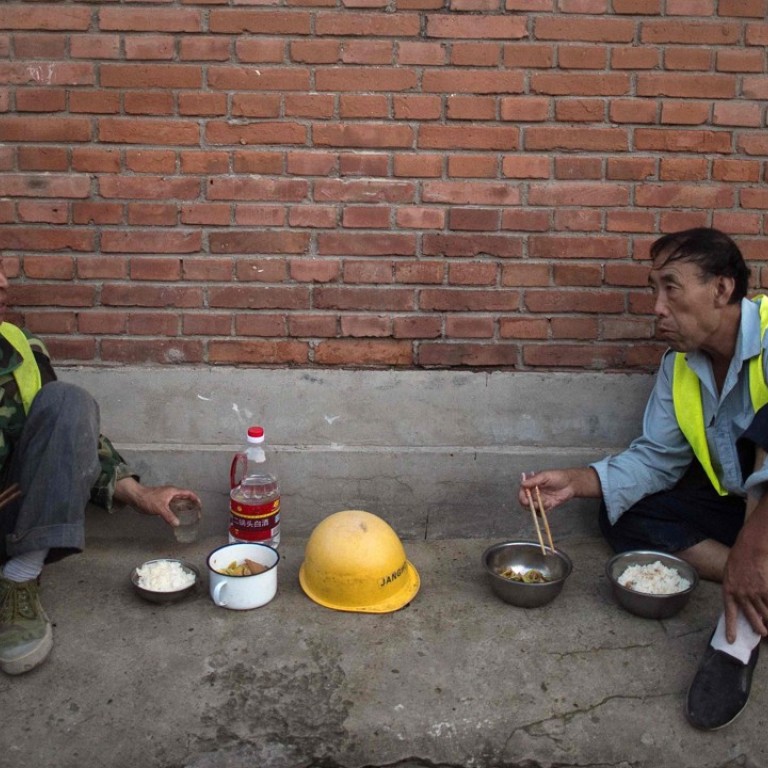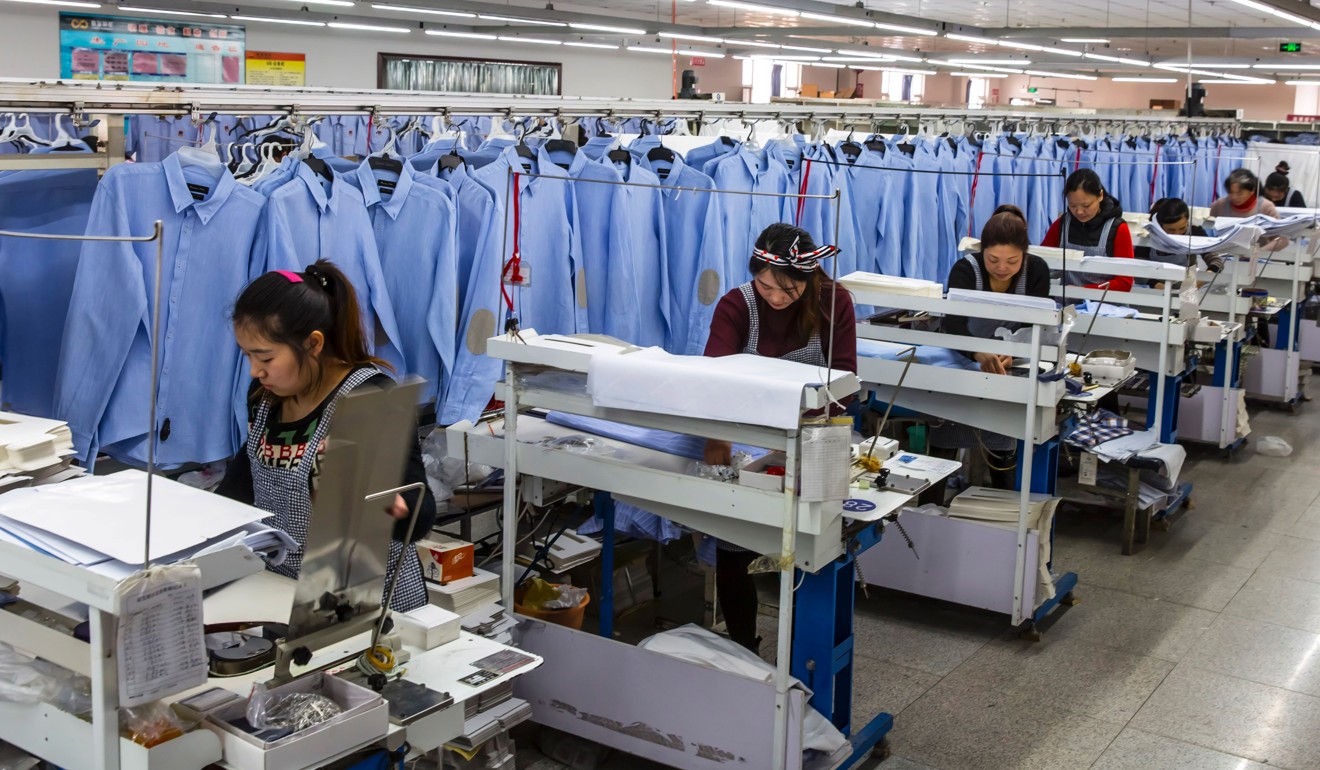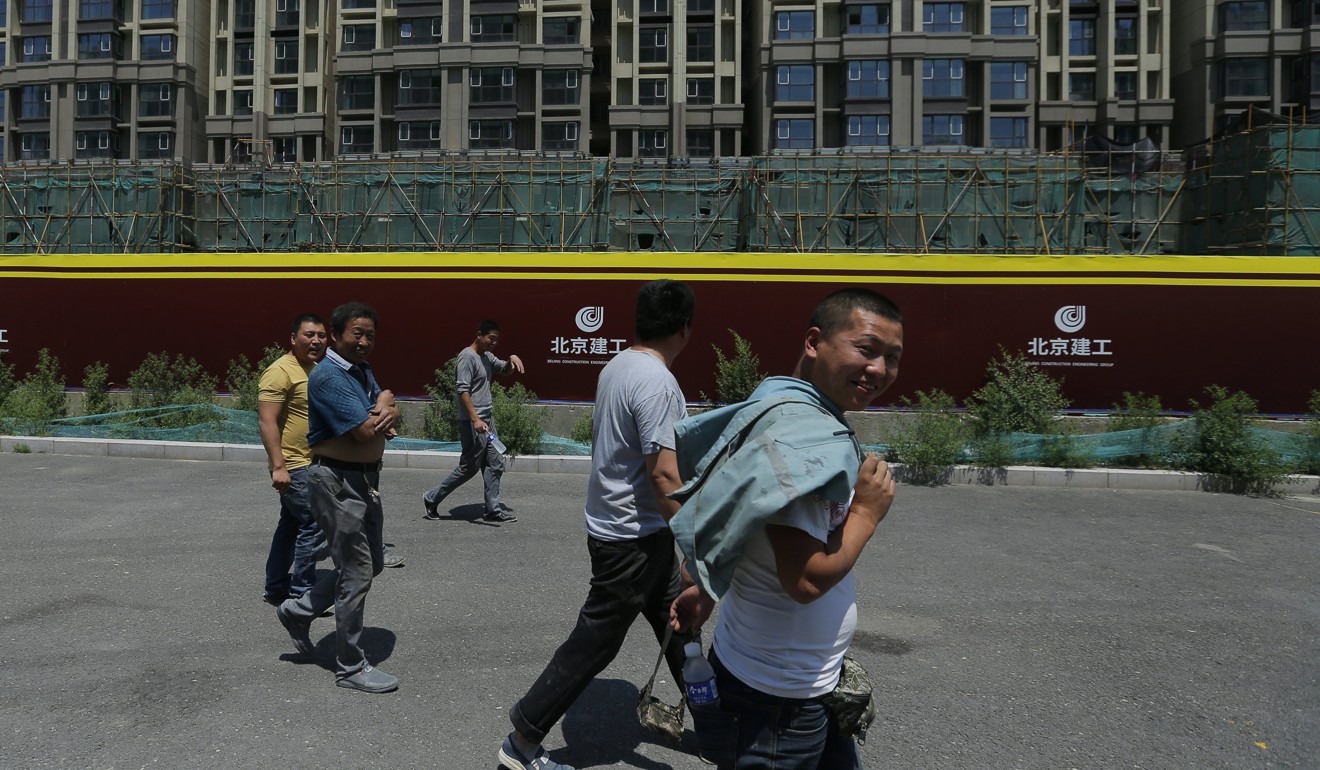
Minimum wages on the march in China as labour pool shrinks
Incomes must keep up with economic growth for expansion to be sustainable, analyst warns
More Chinese provinces are raising minimum wages this year, reflecting persistent labour cost pressure as the supply of workers shrinks in the world’s second-biggest economy.
In all, 17 provinces and municipalities have raised their wage floor so far this year, compared with nine for all of last year.
Jilin, on the border with North Korea, became the latest province to do so when it announced last month that it was lifting the minimum benchmark by 20 per cent to 1,780 yuan (US$270) per month from October 1.
The inland areas of Henan, Shanxi and Ningxia also unveiled 5-12 per cent increases in minimum wages, effective from the start of this month.
Shanghai leads the mainland with a statutory minimum wage of 2,300 yuan, followed by Shenzhen with 2,130 yuan, Tianjin with 2,050 yuan and Beijing on 2,000 yuan.

Zhao Yang, chief China economist at Nomura International in Hong Kong, said China’s minimum wages were set to rise further in the coming years as average wages increased and the economy expanded.
“It’s also guided by the top leadership’s emphasis on poverty alleviation and sharing more of the fruit of growth with the disadvantaged,” Zhao said.
Chinese President Xi Jinping has pledged to wipe out poverty by 2020 as part of the Communist Party’s centennial goal to build a “moderately prosperous society”.
Poverty alleviation is likely to be one of Xi’s main policy priorities during his second term in office after a key national party congress next week, according to analysts.
Tsinghua University economist Yuan Gangming said consumption had lost steam in recent years, showing incomes were not keeping up with economic growth.
“If people cannot benefit from economic expansion, the growth will be unsustainable,” Yuan said.
“Governments will have to raise minimum wages further in the future to offset rising living costs to attract migrant workers.”

China had 282 million migrant workers at the end of last year, with more than a third of them working in eastern coastal areas, the National Bureau of Statistics said in April. The average migrant worker was aged 39 and earned 3,275 yuan a month in 2016, the bureau said.
And of the 40,000 migrant worker households surveyed by the bureau, nearly half of them had no refrigerator or washing machine in their rented flats; 14 per cent had no tap water; 23 per cent no place to take a bath; and 30 per cent had to use a shared toilet.
China’s Gini coefficient, a gauge of income inequality, was 0.465 last year, one of the highest in the world. A reading above 0.4 is seen as a mark of a society ripe for unrest.
There are also least 43 million people living in absolute poverty, or with an annual income of less than 2,800 yuan, according to official data.
In a report released on Tuesday, HSBC economists led by Julia Wang said that even as wages rose at a faster pace, they were still less than those in most established manufacturing economies.
Wages have stayed low because urban employers have been able to draw on a ready and abundant supply of workers from rural areas. These workers made up a large, flexible and mobile labour force that was easy to retain, train and even combine flexibly with automation, the report said.
But Yuan warned that relatively low wages would not always give China the edge.
“While labour costs are rising in China, China may lose out to the US and some European countries as investors, especially those from developed countries, find China’s tax arrangements and legal environment less attractive,” he said.
In December, Cao Dewang, chairman of manufacturer Fuyao Glass, cited “more advantageous” tax rates in the United States for his decision to invest US$1 billion in the US.
Cao said that everything in China except labour was more expensive than in the US.

